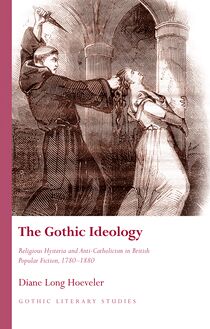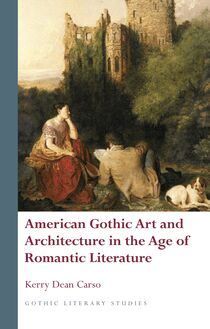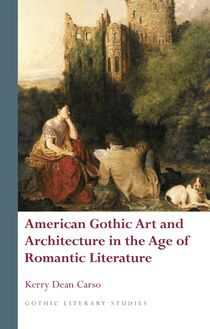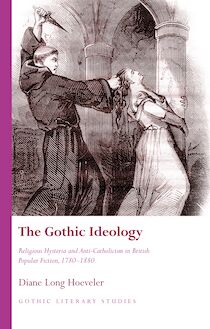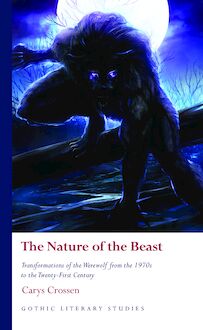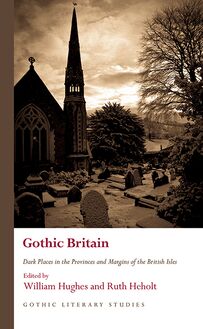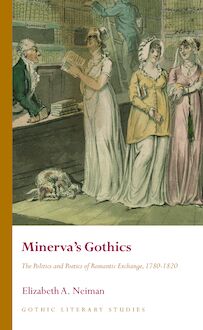-
 Univers
Univers
-
 Ebooks
Ebooks
-
 Livres audio
Livres audio
-
 Presse
Presse
-
 Podcasts
Podcasts
-
 BD
BD
-
 Documents
Documents
-
- Cours
- Révisions
- Ressources pédagogiques
- Sciences de l’éducation
- Manuels scolaires
- Langues
- Travaux de classe
- Annales de BEP
- Etudes supérieures
- Maternelle et primaire
- Fiches de lecture
- Orientation scolaire
- Méthodologie
- Corrigés de devoir
- Annales d’examens et concours
- Annales du bac
- Annales du brevet
- Rapports de stage
La lecture à portée de main
206 pages
English
Découvre YouScribe en t'inscrivant gratuitement
Je m'inscrisDécouvre YouScribe en t'inscrivant gratuitement
Je m'inscris
Obtenez un accès à la bibliothèque pour le consulter en ligne
En savoir plus
En savoir plus
206 pages
English
Obtenez un accès à la bibliothèque pour le consulter en ligne
En savoir plus
En savoir plus

Description
This book is a comparative study of British and American literature and culture in the 1790s and 1950s. It explores the republican tradition of the British Enlightenment and the effect of its translation and migration to the American colonies. Specifically, it examines in detail the transatlantic influence of seventeenth- and eighteenth-century libertarian and anti-authoritarian thought on British and American Revolutionary culture.
Sujets
Informations
| Publié par | University of Wales Press |
| Date de parution | 01 septembre 2009 |
| Nombre de lectures | 0 |
| EAN13 | 9780708322338 |
| Langue | English |
| Poids de l'ouvrage | 1 Mo |
Informations légales : prix de location à la page 0,1074€. Cette information est donnée uniquement à titre indicatif conformément à la législation en vigueur.
Extrait
REPUBLICANISM AND THE AMERICAN GOTHIC
SERIESPREFACE
Gothic Literary Studies is dedicated to publishing groundbreaking scholarship on Gothic in literature and film.The Gothic, which has been subjected to a variety of critical and theoretical approaches, is a form which plays an important role in our understanding of literary, intellectual and cultural histories.The series seeks to promote challenging and innovative approaches to Gothic which question any aspect of the Gothic tradition or perceived critical orthodoxy. Volumes in the series explore how issues such as gender, religion, nation and sexuality have shaped our view of the Gothic tradition. Both academically rigorous and informed by the latest developments in critical theory, the series provides an important focus for scholastic developments in Gothic studies, literary studies, cultural studies and critical theory.The series will be of interest to students of all levels and to scholars and teachers of the Gothic and literary and cultural histories.
SERIESEDITORS
Andrew Smith, University of Glamorgan Benjamin F. Fisher, University of Mississippi
EDITORIALBOARD
Kent Ljungquist,Worcester Polytechnic Institute Massachusetts Richard Fusco, St Joseph’s University, Philadelphia David Punter, University of Bristol Chris Baldick, University of London Angela Wright, University of Sheffield Jerrold E. Hogle, University of Arizona
Republicanism and the American Gothic
Marilyn Michaud
UNIVERSITY OF WALES PRESS C A R D I F F 2 0 0 9
© Marilyn Michaud, 2009
All rights reserved. No part of this book may be reproduced in any material form (including photocopying or storing it in any medium by electronic means and whether or not transiently or incidentally to some other use of this publication) without the written permission of the copy-right owner except in accordance with the provisions of the Copyright, Designs and Patents Act 1988 or under the terms of a licence issued by the Copyright Licensing Agency Ltd, Saffron House, 6–10 Kirby Street, London, EC1N 8TS. Applications for the copyright owner’s written permission to reproduce any part of this publication should be addressed to the University of Wales Press, 10 Columbus Walk, Brigantine Place, Cardiff, CF10 4UP.
www.uwp.co.uk
British Library Cataloguing-in-Publication Data A catalogue record for this book is available from the British Library.
ISBN 978-0-7083-2146-1 e-ISBN 978-0-7083-2233-8
The right of Marilyn Michaud to be identified as author of this work has been asserted by her in accordance with sections 77, 78 and 79 of the Copyright, Designs and Patents Act 1988.
Printed in Great Britain by CPI Antony Rowe, Chippenham,Wiltshire
Introduction
1
2
3
4
5
CONTENTS
Republican Historiography
Vampires and the Cyclical Theory of History
The Double and Republican Masculinity
Conspiracy and Hypocrisy inRosemary’s Baby
Virtue and Corruption in Truman Capote’s In Cold Blood
Afterword
Bibliography
Index
1
30
52
80
107
142
174
177
191
Introduction
To penetrate fully into a work of literature is finally to make a serious effort to develop the historical imagination, to view the world . . . through another culture, another time, another nationality. 1 Joseph Anthony Mazzeo
The initial task of scholarship devoted to the Gothic is often an attempt at definition: what is Gothic? Typically, the discussion will begin with an exploration of the relationship between the nascent British form and its various progenitors followed by the inevitable conclusion that the term is ‘fluid’,‘troublesome’ and ‘mutable’.The solution, Fred Botting suggests, is more criticism:‘Elusive, phantom-like, if not phantasmatic, floating across generic and historical boundaries, Gothic (re) appearances demand and disappoint, and demand again, further critical scrutiny to account for their con-2 tinued mutation.’ In an effort to illuminate the genre, analysis has splintered into a host of thematic, temporal and regional sub-specialities each functioning to demarcate the multiplicity of approaches and the changing interpretative needs orbiting the term ‘Gothic’. Yet, while these new readings challenge some durable myths surrounding the production, circulation and interpretation of texts, they too tend to be fragments, telling only part of the story of the Gothic’s origin and meaning. The result is that significant
Republicanism and the American Gothic
explanatory relations often go unrecognized and, in particular, the relationship between the term’s literary meaning and its prevalent 3 historical and ideological usages. This is particularly true in relation to the American Gothic which for many critics represents a trouble-some contradiction.As Teresa Goddu argues, when modified by the word American, the Gothic loses all its ‘usual referents’; not only does it lack the ‘self-evident validity of its British counterpart’, it is 4 essentially antagonistic to American identity. American Gothic, Robert Miles asserts, is an ‘oxymoron signalling its own uncanniness’: ‘The Gothic ought to have undergone ideological erasure, for its mean-ing was essentially anti-American: it spelled entrapment, enclosure, the inescapable, parasitic power of the past, the inglorious triumph of 5 class, feudalism, vestigial institutions, and even nature itself.’ While it is no longer contentious to claim that American culture is ‘drenched in Gothic sensibility’, for many critics, its presence in 6 the land of ‘light and affirmation’ remains an unremitting paradox. The popularity of American Gothic fiction indicates how ardently critics feel the need to explain the persistence of the form in a political and cultural environment seemingly divorced from traditional Gothic impulses.To account for a Gothic imagination in American culture, analysis has centred on psychology. Seen as a reflection of colonial anxieties, Puritan repression and pathological guilt resulting from the nation’s encounter with slavery and Indian massacre, the parameters of the American Gothic are marked primarily by ‘psychological, 7 internalised, and predominately racial concerns’. InôvE àDeath in the American Novelthe first work to focus exclusively on, arguably American Gothic writing, Leslie Fielder’s reading of early American texts exemplifies this approach:‘European Gothic identified blackness with the super-ego and was therefore revolutionary in its implications; the American gothic . . . identified evil with the id and was con-servative at its deepest level of implications, whatever the intent of 8 its authors.’ Unlike their British counterparts,American writers are always in a state of ‘beginning, saying for the first time . . . what it is like to stand alone before nature, or in a city as appallingly lonely as any virgin forest’. For Fiedler, the Gothic is juvenile and repetitive because it deals primarily with a world of limited experience: a world American authors return to time and again due to their inability ‘to deal with adult heterosexual love and [their] consequent obsession with
2
-
 Univers
Univers
-
 Ebooks
Ebooks
-
 Livres audio
Livres audio
-
 Presse
Presse
-
 Podcasts
Podcasts
-
 BD
BD
-
 Documents
Documents
-
Jeunesse
-
Littérature
-
Ressources professionnelles
-
Santé et bien-être
-
Savoirs
-
Education
-
Loisirs et hobbies
-
Art, musique et cinéma
-
Actualité et débat de société
-
Jeunesse
-
Littérature
-
Ressources professionnelles
-
Santé et bien-être
-
Savoirs
-
Education
-
Loisirs et hobbies
-
Art, musique et cinéma
-
Actualité et débat de société
-
Actualités
-
Lifestyle
-
Presse jeunesse
-
Presse professionnelle
-
Pratique
-
Presse sportive
-
Presse internationale
-
Culture & Médias
-
Action et Aventures
-
Science-fiction et Fantasy
-
Société
-
Jeunesse
-
Littérature
-
Ressources professionnelles
-
Santé et bien-être
-
Savoirs
-
Education
-
Loisirs et hobbies
-
Art, musique et cinéma
-
Actualité et débat de société
- Cours
- Révisions
- Ressources pédagogiques
- Sciences de l’éducation
- Manuels scolaires
- Langues
- Travaux de classe
- Annales de BEP
- Etudes supérieures
- Maternelle et primaire
- Fiches de lecture
- Orientation scolaire
- Méthodologie
- Corrigés de devoir
- Annales d’examens et concours
- Annales du bac
- Annales du brevet
- Rapports de stage
Signaler un problème
YouScribe
Le catalogue
Le service
© 2010-2024 YouScribe

